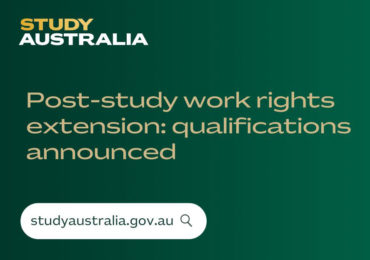The Genuine Temporary Entrant (GTE) requirement is an integral element of your application process. It is a means for governments to ensure that you want to study overseas temporarily with the purpose of gaining a quality education.
The following factors are taken into account in determining whether you meet GTE requirements
1. Your financial stability
The first factor which determinates you meet GTE requirements is to prove you have a financial support to begin the application process. This budget can be supported by you or a sponsor, such as parents, siblings or spouse – the more likely you will be successful in your application-.
You need to have into your Bank account a minimum of the first year’s tuition fees in addition to the cost of living for the first year and this budget needs to had remained into your account a minimum of three months before you start your application -the more funds, the better the chances for you-.
Some applicants will not need to provide financial capacity evidence with their education provider application; however, education experts will have discretion to ask the student for this during the application process.
2. Your age
While technically there is no age limit for people to an education provider, most data points to the difficulty of education provider’s letters of offer being issued if you are mature and you probably won’t meet the GTE requirements.
The following conditions will reduce highly the chance of receiving an offer:
- If you are older than 25 years and are applying for undergraduate studies
- If you are older than 35 years and are applying for postgraduate studies.
3. Your current circumstances in your home country (or country of residence)
Countries with unstable governments and countries bordering these areas are often scrutinised more carefully by education providers, and there is a lower chance of letters of offers in these areas being issued due to security concerns. Other circumstances include the lack of ties to your home country that support the intention not to return once your study journey is complete.
4. Any gaps in your previous study
If you have a gap in previous study of six months or more, you must provide in your GTE a resume or explain what you have been doing during this time.
If you have only completed high school you’re good candidate up to 3- 5 years afterwards. Once you have been out of high school for more than five years the chance of getting a letter of offer is lower.
If you’re applying to Postgraduate and Master’s programs, you will be a good candidate for up to five to seven years after completing your diploma or degree. After seven years the chance of getting a letter of offer is significantly lower -the only exception to this rule is if you have been working for a large global or international company in a good position during this time-.
5. The value of the course to your future
If you want to apply for courses that are not related to what you have already studied or to your work experience, you will have a low chance of receiving a letter of offer.
6. The level of education you’re applying to study at
The education provider (Colleges or Universities) usually rejects applications from students who are applying for another undergraduate degree -especially in the same field-. If this is your case and want to fix it, you should apply to a Masters or postgraduate degree.
7. Your Statement of Purpose (SOP)
The statement of purpose is a straightforward document that some education providers require you as part of your application process.
Its purpose is to provide education provider departments with your personal statement on why you should be issued an offer for the course you’ve applied to. Try shaping your Statement of Purpose around these questions:
- Why have you chosen the target country, e.g. Australia or New Zealand as a study destination?
- Why have you applied to this particular education provider?
- If you’ve had any gaps between your education and employment, can you explain why?
- How do you believe the course you have applied for will increase your chances of employment in your home country?
- When do you intend to return to your home country?
8. Your immigration history
If you have been refused or cancelled a visa before to Canada, the USA, the United Kingdom, New Zealand or Australia, chances of education providers issuing a letter of offer are very small.
To learn more about this GTE requirement please visit the following link.
Sofiri makes it easier
We have online forms that are fully structured accordingly to your applications whether you’re applying for different education providers.
Just go to the applications tab at the left menu (once an application has been created), then click on the bar called Genuine Temporary Entrant and an online form will drop off.

It’ll be pretty easy to fill up for you! Even though, do not hesitate to contact you education expert if you have any doubt.
Want more?
If you’re looking for information on English language courses, technical, vocational, bachelor, master or doctorate courses in Australia or New Zealand and you think you meet GTE requirements, please consider Sofiri. With Sofiri, you can get free advice on courses, help with your application and even assistance with your student visa. You will get guidance throughout your trip and answers to your questions every step of the way. What are you waiting for?




